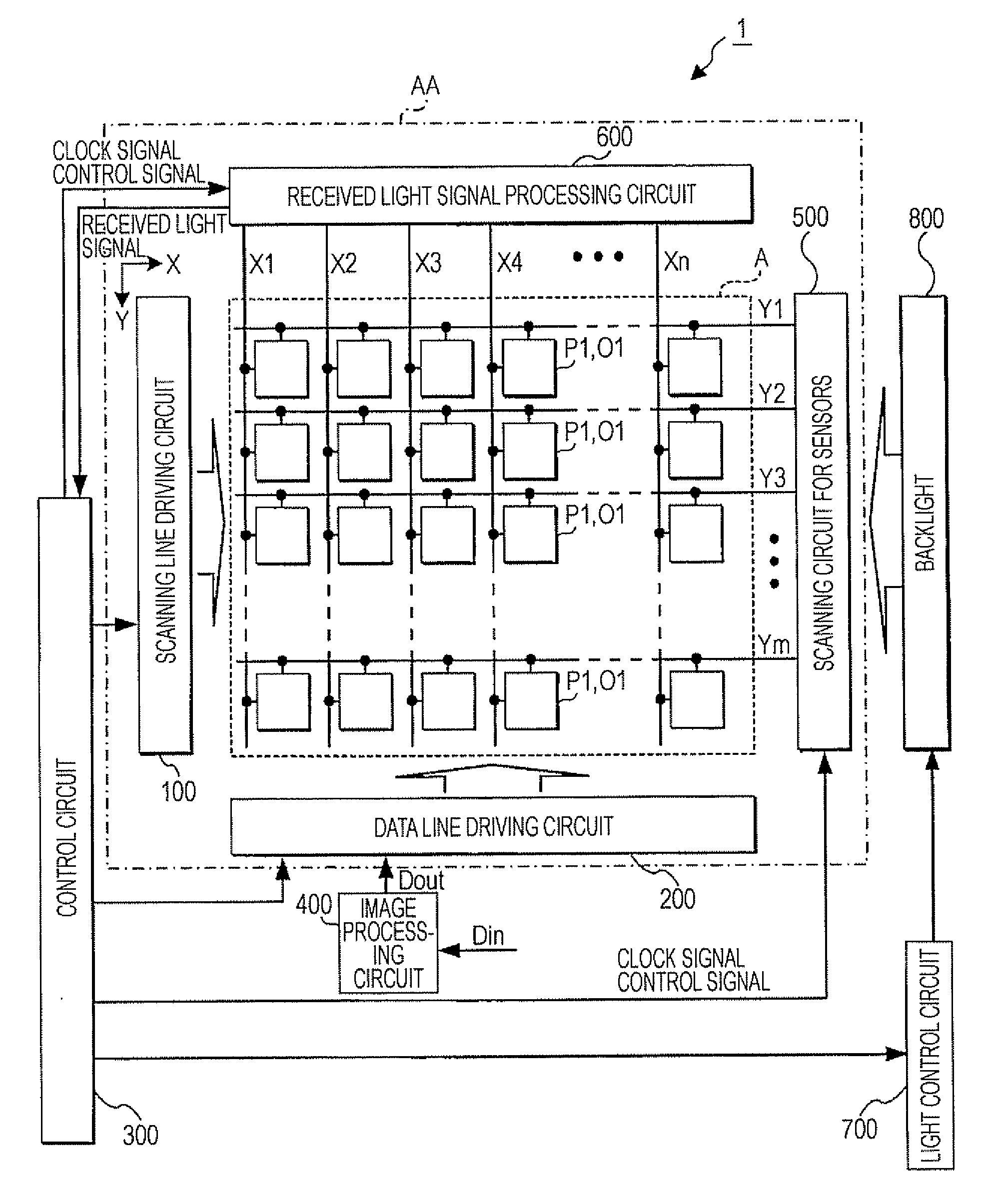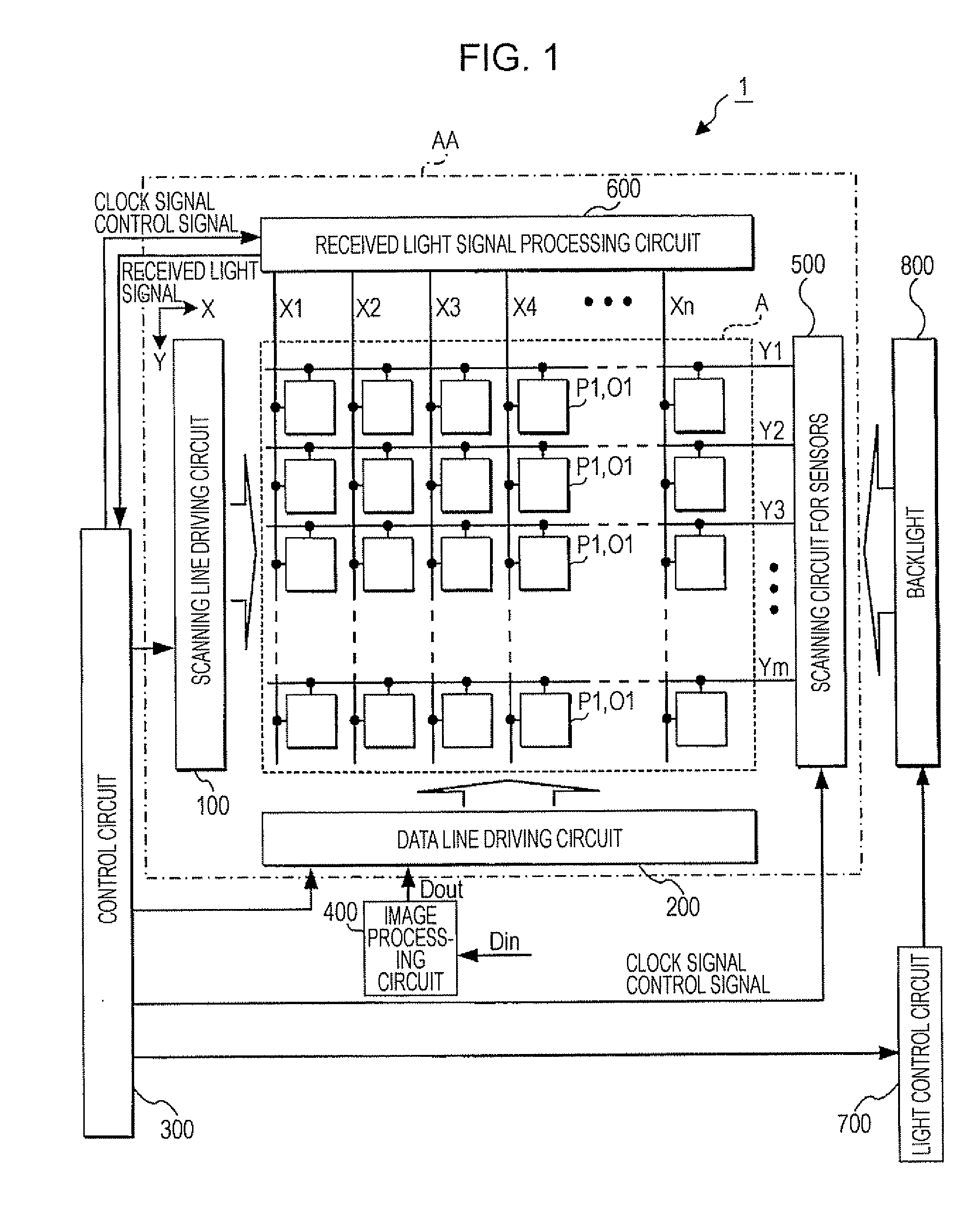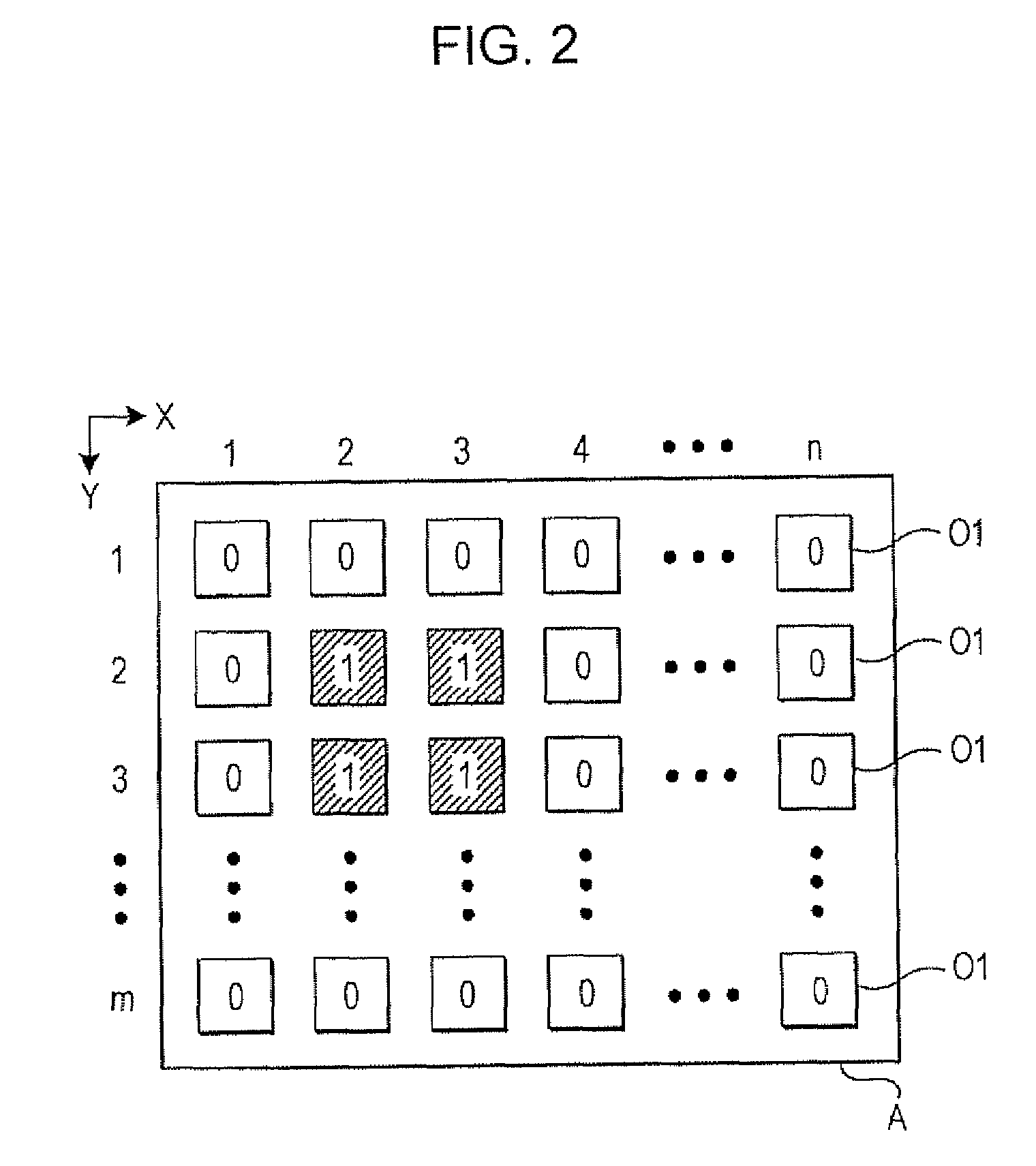Sensing device, display device, electronic apparatus, and sensing method
a display device and sensing technology, applied in the field of sensing devices, can solve the problems of increasing power consumption in proportion to the shortened detection period, unable to trace the high-speed movement of a finger or light pen, and unable to smoothly input handwritten images or the like by touch input, so as to achieve smooth touch input and reduce power consumption
- Summary
- Abstract
- Description
- Claims
- Application Information
AI Technical Summary
Benefits of technology
Problems solved by technology
Method used
Image
Examples
embodiment a1
[0097]FIG. 1 is a block diagram illustrating the configuration of a liquid crystal display device 1 according to the embodiment A1.
[0098]As shown in FIG. 1, the liquid crystal display device 1 includes a liquid crystal panel AA, a control circuit 300, an image processing circuit 400, a light control circuit 700, and a backlight 800. The liquid crystal panel AA is obtained by bonding an element substrate, in which a thin film transistor as a switching element is formed, and a counter substrate together in a state where electrode formed surfaces of the substrates face each other and a predetermined gap is maintained between the substrates. Liquid crystal is interposed in the gap. In addition, the liquid crystal panel AA includes an image display area A, a scanning line driving circuit 100, a data line driving circuit 200, a scanning circuit 500 for sensors, and a received light signal processing circuit 600 which are provided on the element substrate. In the image display area A, ‘m (...
embodiment b1
[0142]Next, an embodiment B1 will be described.
[0143]In addition, since the hardware configuration of a liquid crystal display according to the present embodiment is almost similar to that of the liquid crystal display device 1 according to the embodiment A1, the same reference numerals as in the embodiment A1 are used. In addition, an explanation on the same parts as in the embodiment A1 will be omitted.
[0144]The liquid crystal display device 1 according to the present embodiment can determine whether or not there is a touch on the basis of received light signals for one screen and determine whether or not the finger or the touch pen 50 approaches close to the display screen (whether or not there is approach). In addition, the distance allowing it to be determined whether or not there is approach is a distance within which reflected light or shadow of a finger or the touch pen 50 can be sensed from the received light amount of each photodetection circuit O1.
[0145]Specifically, firs...
embodiment b2
[0178]In the embodiment B1, the case where the received light signals for one screen are read every 60 Hz in the normal mode and every 10 Hz in the low consumption mode has been described. In the present embodiment, a case where received light signals are read from only some photodetection circuits O1 provided in the image display area A in the low consumption mode will be described.
[0179]The liquid crystal display device 1 according to the present embodiment has a normal mode and a low consumption mode, similar to the case of the embodiment B1. In the normal mode, the scanning circuit 500 for sensors and the received light signal processing circuit 600 read received light signals every 60 Hz from all photodetection circuits O1 provided in the image display area A. On the other hand, in the low consumption mode, the scanning circuit 500 for sensors and the received light signal processing circuit 600 read the received light signals every 10 Hz from some of the photodetection circuit...
PUM
 Login to View More
Login to View More Abstract
Description
Claims
Application Information
 Login to View More
Login to View More - R&D
- Intellectual Property
- Life Sciences
- Materials
- Tech Scout
- Unparalleled Data Quality
- Higher Quality Content
- 60% Fewer Hallucinations
Browse by: Latest US Patents, China's latest patents, Technical Efficacy Thesaurus, Application Domain, Technology Topic, Popular Technical Reports.
© 2025 PatSnap. All rights reserved.Legal|Privacy policy|Modern Slavery Act Transparency Statement|Sitemap|About US| Contact US: help@patsnap.com



